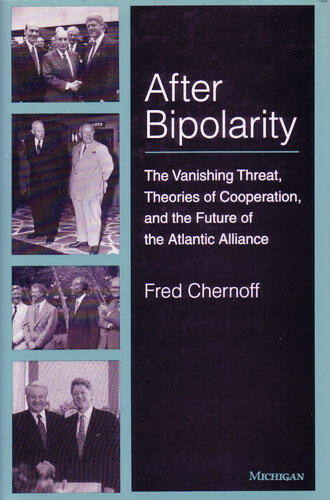After Bipolarity
The Vanishing Threat, Theories of Cooperation and the Future of the Atlantic Alliance
A new perspective on post-Cold War security issues
Description
The demise of the Soviet threat has compelled the United States and Europe to reassess how they deal with each other and with the rest of the world. For the past forty-five years, NATO has been the centerpiece of U.S.-European security relations, but some analysts now argue that the alliance can no longer survive. Should NATO states continue to rely on the NATO alliance for security?
Several theories have been advanced to help answer this question. Nevertheless, After Bipolarity defends the argument that none of them---neorealism, neoliberal institutionalism, or cybernetic theory---is an entirely convincing account of past relations among NATO states and proposes a new theory based on disparate elements of these earlier theories. The author builds his case on twenty-one instances where alliance cooperation was sought, from the Suez crisis to Operation Desert Storm, representing a variety of issue areas: arms deployments, arms control, out-of-area operations, and alliance doctrine. Much of the data for the case studies comes from interviews with government and alliance officials and sheds considerable new light on certain key alliance decisions.
After Bipolarity makes use of a variety of methods to test the key variables. Boolean algebra in particular is used to illuminate the author's theory, which contends that there is no unique set of necessary and sufficient conditions for cooperation but that there are alternate sets of conditions that may produce cooperative behavior. It is noteworthy that threat perception, a variable emphasized in widely accepted realist and neorealist theories, does not perform as well as other, less popular variables in explaining cooperation. Chernoff concludes that without a commonly perceived threat, continued trans-Atlantic cooperation will be possible but will require a more diligent management of intra-alliance relations.
Fred Chrnoff is Associate Professor of Political Science, Colgate University.
Fred Chernoff is Associate Professor of Political Science, Colgate University.

